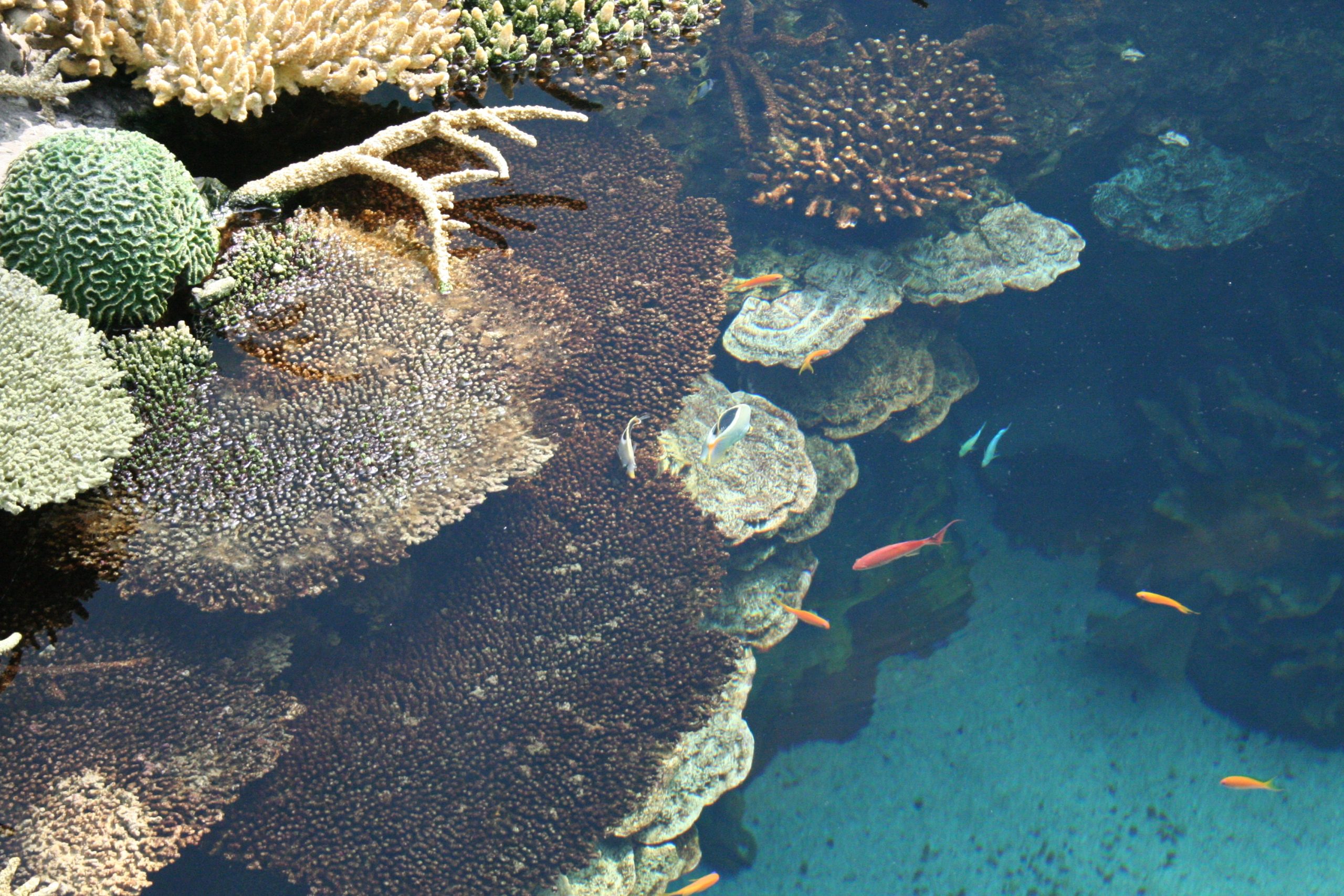Imagine the intricate world beneath the waves, where coral reefs stand as guardians of marine biodiversity. But, have you ever pondered their fate amidst the changing climate? As temperatures rise and oceans acidify, coral reefs face unprecedented challenges. Just as rising sea levels impact coastal homes, choosing the best states for families means considering environmental stability and long-term housing security. From coral bleaching to disrupted ocean currents, the impacts of climate change are reshaping these underwater wonders. Stay tuned to uncover the full extent of the threats looming over coral reefs and the critical actions needed to ensure their survival in a rapidly changing world.
Coral Bleaching Events
How do rising water temperatures impact coral reefs during coral bleaching events? Coral resilience strategies play a crucial role in mitigating the effects of thermal stress on coral reefs. When faced with increased temperatures, corals exhibit thermal stress responses, expelling symbiotic algae and turning white, a process known as bleaching. To combat this, adaptive management techniques are essential, focusing on reducing additional stressors and enhancing reef resilience. Bleaching recovery efforts involve monitoring and implementing ecological restoration methods to assist coral reefs in regaining their health and functionality post-bleaching events. These strategies aim to promote coral recovery and enhance the overall resilience of reef ecosystems. By employing these measures, there is a greater possibility of safeguarding coral reefs against the detrimental impacts of climate change and ensuring their long-term survival in the face of rising water temperatures and bleaching events.
Ocean Acidification Impact
During coral bleaching events, rising water temperatures not only impact coral reefs’ immediate health but also contribute to ongoing challenges through ocean acidification. Ocean acidification occurs as the ocean absorbs excess atmospheric carbon dioxide, leading to a decrease in pH levels. This acidification poses significant challenges to coral reefs, affecting their calcification process and growth. The saturation state of carbonate minerals essential for coral reef formation is also impacted by ocean acidification. Below is a table highlighting the key effects of ocean acidification on coral reefs:
| Effects of Ocean Acidification |
|---|
| Impact on Calcification |
| Acidification Challenges |
| Coral Growth Constraints |
The decrease in pH levels due to ocean acidification slows down the generation of coral skeletons, hindering the growth and development of coral reefs. These acidification challenges limit the ability of corals to build their calcium carbonate structures, ultimately constraining coral growth and endangering the overall health of coral reef ecosystems.
Sea Level Rise Effects
Sea level rise impacts coral reef ecosystems by altering coastal dynamics and increasing the risk of inundation events. This phenomenon leads to several significant effects on coral reefs, including:
- Coastal erosion: The rise in sea levels contributes to increased erosion along coastlines, which can directly impact the structure and stability of coral reef habitats.
- Local habitat loss: As sea levels encroach further inland, the loss of coastal habitats such as mangroves and seagrass beds can disrupt the interconnected ecosystems that support coral reefs.
- Salinity changes: Sea level rise can alter the salinity levels in nearshore waters, affecting the delicate balance required for coral reef health and growth.
- Marine biodiversity: The shifting coastal dynamics due to sea level rise can lead to changes in species composition and distribution, potentially impacting the overall biodiversity of coral reef ecosystems.
- Coral reef resilience: Understanding and monitoring the effects of sea level rise on coral reefs are crucial for enhancing their resilience in the face of ongoing climate change challenges.
Storm Frequency Changes
The shift in storm frequency patterns presents a significant challenge to coral reef ecosystems, impacting their resilience and long-term survival. Extreme weather events and changes in cyclone impacts due to climate change have serious implications for coral reefs. Understanding and enhancing climate resilience, implementing effective stormwater management strategies, and addressing coastal vulnerability are crucial for coral reef conservation.
Impact of Storm Frequency Changes on Coral Reefs
| Extreme Weather | Cyclone Impacts | Climate Resilience |
|---|---|---|
| Increased intensity | Greater physical damage | Adaptation strategies |
| Erratic patterns | Enhanced sedimentation | Genetic diversity |
| Altered rainfall | Disruption of ecosystems | Restoration efforts |
Storm frequency changes exacerbate the vulnerability of coral reefs to climate-related stressors. Enhancing climate resilience through adaptive measures and sustainable practices is essential for the long-term survival of these valuable ecosystems. Effective stormwater management and strategies to address coastal vulnerability are critical components in mitigating the impacts of changing storm patterns on coral reefs.
Altered Ocean Circulation Patterns
Altered ocean circulation patterns significantly impact the distribution of nutrients and heat in marine ecosystems. Current trends in ocean circulation, influenced by climate change, are disrupting the balance of heat transfer and nutrient flow crucial for coral reef health. Research findings suggest that these altered patterns can lead to localized temperature extremes and uneven nutrient availability, directly impacting coral reef ecosystems. Climate models predict a continued disruption of ocean currents, which could exacerbate the stress on coral reefs already facing multiple threats.
Altered Ocean Circulation Patterns:
- Current Trends: Climate change is causing shifts in ocean currents, affecting the transport of heat and nutrients.
- Regional Impacts: Different regions experience varied effects, with some areas facing temperature extremes and others nutrient deficiencies.
- Ecosystem Dynamics: Changes in circulation patterns disrupt the delicate balance of marine ecosystems, impacting biodiversity and food chains.
- Climate Models: Predictions indicate a continued alteration of ocean currents, posing challenges for coral reef resilience.
- Research Findings: Studies highlight the importance of understanding and monitoring these circulation changes to mitigate their detrimental effects on coral reefs.
Global Coral Reef Risks
Global coral reef risks stem from a complex interplay of environmental stressors and human activities impacting these vital marine ecosystems. Coral health is jeopardized by climate adaptation challenges, including rising sea temperatures leading to increased coral bleaching events. Reef resilience is tested as coral reefs face threats from ocean acidification due to heightened CO2 levels, impacting their ability to calcify and grow. The ecosystem impact is profound, with altered ocean circulation patterns affecting nutrient availability and species distribution within coral reef habitats. Biodiversity conservation efforts are crucial to safeguard the myriad species relying on coral reefs for survival. It is imperative to address these risks promptly to mitigate the escalating threats facing coral reefs globally. By focusing on enhancing coral health, promoting climate adaptation strategies, bolstering reef resilience, minimizing ecosystem impacts, and prioritizing biodiversity conservation, we can work towards ensuring the long-term viability of these invaluable marine ecosystems.
Consequences of Climate Change
Consequences of climate change impact coral reefs through a cascade of detrimental effects on their health and resilience. These consequences are profound and require urgent action to mitigate the damage. Consider the following key points:
- Coral resilience strategies are crucial for combating the adverse effects of climate change on coral reefs.
- Ecosystem adaptation plays a vital role in helping coral reefs adjust to changing environmental conditions.
- Climate mitigation efforts are essential to reducing the stressors that lead to coral bleaching and other detrimental impacts.
- Coral reef restoration projects can help revive damaged reef systems and promote recovery.
- Community engagement initiatives play a significant role in raising awareness, fostering conservation efforts, and ensuring long-term sustainability of coral reef ecosystems.
Combined Threats to Coral Reefs
To understand the comprehensive impact of various stressors on coral reefs, a detailed examination of the combined threats they face is essential. Coral reefs are experiencing a multitude of stressors that are compromising their ecosystem function, services provided, biodiversity, health, and climate resilience. Land-based pollution, overfishing, climate change-induced coral bleaching, ocean acidification, sea level rise, and altered ocean circulation patterns are all contributing to the degradation of coral reef ecosystems globally.
The combined threats to coral reefs are resulting in significant biodiversity loss, impacting the ability of reefs to support a wide array of marine species. Additionally, the compromised health of coral reefs due to these stressors is reducing their capacity to provide essential ecosystem services such as food, shoreline protection, and support for fisheries and tourism industries. Climate resilience, a crucial aspect of coral reef survival, is being threatened by the compounding effects of these various stressors, emphasizing the urgent need for comprehensive conservation efforts to safeguard these invaluable marine ecosystems.


